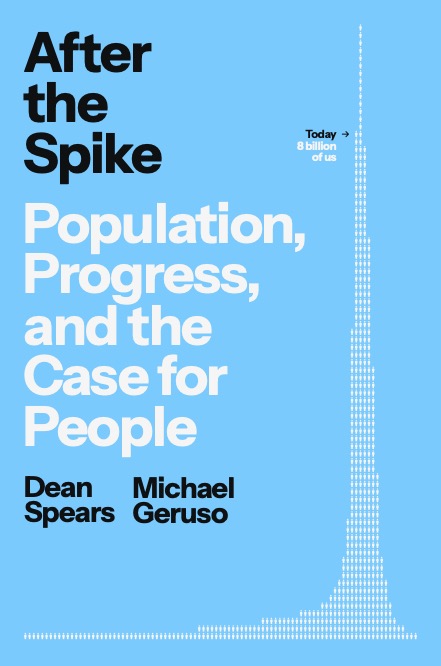Dean Spears
” data-medium-file=”https://i0.wp.com/www.austinchronicle.com/wp-content/uploads/2025/10/profile-dean-spears-scaled.jpg?fit=300%2C200&ssl=1″ data-large-file=”https://i0.wp.com/www.austinchronicle.com/wp-content/uploads/2025/10/profile-dean-spears-scaled.jpg?fit=780%2C520&ssl=1″>
Texas’ declining birth rate is not something you’re likely to notice while jogging around Lady Bird Lake or grocery shopping at H-E-B, says UT population researcher Dean Spears.
The difference between a society where people have 1.8 kids on average, compared to 2.1, is hardly noticeable at first. But over a few generations, it becomes dramatic – the difference between exponential growth and exponential decay.
In Texas, and worldwide, dropping birth rates could lead to rapid population decline starting in a few decades.
Many see a shrinking population as good news. Most people surveyed by the United Nations in 2023 said they believe that the world population is already too big. Leaders of the green movement sometimes predict population decline will relieve the environment. In his 2020 documentary calling to restore the natural world, David Attenborough says that the sooner the population peaks, “the easier it makes everything else we have to do.”

It seems obvious that fewer people would mean less carbon emissions. “Think again,” write Spears and UT economist Michael Geruso in their new book, After the Spike: Population, Progress, and the Case for People.
They point to a body of empirical research that finds that, contrary to popular belief, depopulation would not meaningfully curb climate change. They argue climate action is urgent, and depopulation’s impact would amount to too little, too late.
Spears and Geruso lay out some of the predictable and scary consequences of an ever-shrinking population. But beyond these, they warn of a great unknown: We can’t be sure what all humanity would lose by shrinking.
Does the Birth Rate Conversation Belong to the Right?
The threat of depopulation is an issue that right-wing personalities have pounced on to support racist conspiracy theories and a return to traditional gender roles. These voices are particularly loud in Austin, where the pro-natalist movement’s flagship event – the Natal Conference, hosted this spring at the AT&T Center on the UT campus – has featured speakers who mingle with neo-Nazis.
But Spears argues that caring about a stable population is totally compatible with caring about progressive priorities.
Spears is pro-choice because he believes it’s wrong to force a person to have a baby. But also, “banning abortion, as bad as it is, doesn’t change the long-term trajectory of birth rates,” Spears told the Chronicle. Texas is one example. After the near-total abortion ban took effect in 2022, the birth rate has continued to trend downward.
Likewise, a shrinking population is not a silver bullet for climate change, Spears and Geruso argue in their book. According to their analysis, depopulation will take decades and only have a modest effect on carbon emissions. It would also mean fewer hands on deck to clean up humanity’s fossil fuel mess. The authors argue that a depopulation strategy is a distraction from the urgent task at hand. “The only way to confront climate change is to reach net-zero emissions – and soon,” they write.
Arguments like these would seem to pit Spears and Geruso squarely against the right wing. But the depopulation conversation has produced some strange bedfellows.
Elon Musk is one of the world’s most prominent voices decrying low birth rates. His foundation donated $10 million to UT-Austin to support a population-focused research initiative that Spears directs. Musk gave one simple comment about the donation: “I care very much.”
Yet, some of Musk’s political moves since 2021 run counter to findings from UT research he aimed to fund. One of Spears’ most recent articles, published in 2024, underscored the importance of subsidies for maternal nutrition in India, “where one-fifth of all births occur.” A few months after that study was published, Musk’s Department of Government Efficiency (DOGE) shuttered the federal organization that helped feed moms in India – U.S. Agency for International Development (USAID).
Slashing USAID also cut off crucial fertility data.
“When the Trump administration swung a wrecking ball through USAID, part of what was in the path of it is the Demographic and Health Surveys,” Spears told the Chronicle. “For India and for places that don’t have complete vital restoration, the only source that anybody uses – the only way that we know any of these things – is because of the Demographic and Health Surveys.”
Given that Musk has shown an interest in Spears’ work, the Chronicle wondered what Spears would tell Musk if he had just a couple sentences. “Let’s make sure the Demographic and Health Surveys are healthy. I can say it in one sentence.”
Beyond Politics
The central argument in After the Spike, and threaded through the work of UT’s population research initiative, transcends politics.
Spears and Geruso pull quotes from sacred texts, secular astronomer Carl Sagan, and science-fiction novelist Ursula K. Le Guin to make this point: Life is precious, if not miraculous. “Our view, that More Good is Better, says that quantity and quality both matter – that we can’t ignore how many lives get to be lived.”
They don’t argue for specific policies. In fact, Spears says it’s too early for that.
He compares the issue of depopulation to climate change. If the first scientists sounding the alarm had called for the immediate banning of the internal combustion engine, it wouldn’t have seemed serious, he says. But over decades, people developed crucial tools and strategies in use today.
“So it’s a good thing that people six decades ago started thinking about this longer-term challenge, even when it was far too soon to have all of the answers,” Spears says. “I think we’re in a similar situation right now, where it’s far too soon to have all of the answers, and we shouldn’t.”
The post Meet the UT Researcher Who Wants to Open the Depopulation Conversation to Everyone appeared first on The Austin Chronicle.

